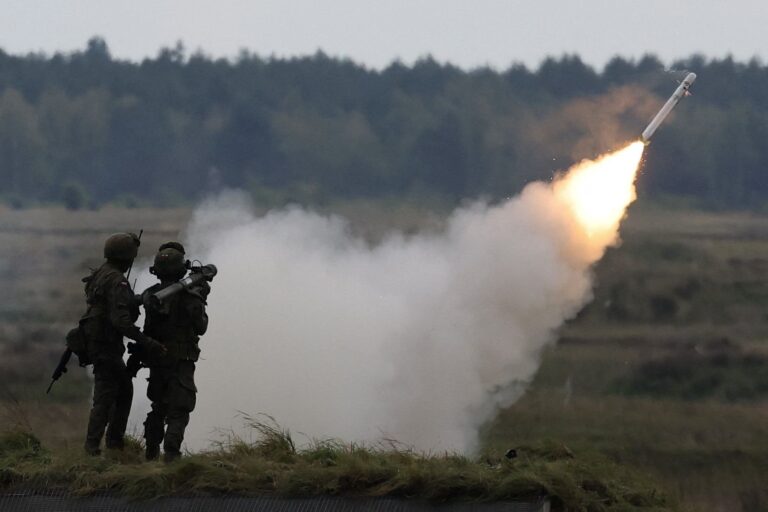Biznes Fakty
Producers are sounding the alarm: the situation is extremely difficult. An appeal to Prime Minister Donald Tusk.

In a correspondence directed to Prime Minister Donald Tusk, oil producers are urging the lifting of restrictions on rapeseed imports from Ukraine. They predict that the deficit of this raw material in the 2025/2026 season could reach at least 500,000 tons, negatively affecting domestic crushing facilities. The Ministry of Development and Technology has stated that it is delaying any decisions regarding this issue.
The Polish Oil Producers Association (PSPO), which represents 95% of the oil and fat processing plants in Poland, has called for Prime Minister Donald Tusk’s involvement in revising the regulation issued by the Ministry of Development and Technology on September 15, 2023, that prohibits the import of agricultural goods from Ukraine. This request is based on a predicted shortage of rapeseed in the Polish market, which PSPO expects to reach at least 500,000 tons in the 2025/2026 season.
„We have a deficit”
The association emphasized that the current state of the domestic oil industry is already „incredibly challenging.” The nation is currently experiencing a raw material shortage for the 2024/2025 season, considering the processing capacity of oil mills, which exceeds 4 million tons of rapeseed annually.
As noted by PSPO in their correspondence to the Prime Minister, the 2023-2024 period was a record year for seed processing and the availability of rapeseed products. Last year, member companies of PSPO processed over 3.66 million tons of rapeseed, yielding 1.6 million tons of oil and 2.1 million tons of protein feed. „This achievement was made possible by the excellent rapeseed harvest first in 2022, followed by a record crop in 2023, which, according to the Central Statistical Office, reached 3.74 million tons of seeds, and some industry estimates suggest it may have even surpassed 4 million tons,” stated the association.
– With PSPO members processing 3.7 million tonnes annually and natural exports of 300-400 thousand tonnes of Polish rapeseed, primarily to Germany, we are faced with a gap which, due to existing Polish law, we cannot fill with imports from neighboring Ukraine – explained Mariusz Szeliga, president of the Polish Association of Oil Producers, as quoted in a statement on the organization’s website.
Ban on imports from Ukraine
PSPO Director General Adam Stępień highlighted that the 2023 regulation has prohibited the import of rapeseed from Ukraine, yet it did not restrict the import of oil, which adversely affects domestic crushing plants.
– For Polish businesses, the current situation leads to a loss of competitiveness not only in the European market but also domestically – stated Stępień.
– In a context where companies from other EU member states can meet their raw material needs and enhance their processing capabilities (…), there exists a risk that some of the rapeseed oil and protein feeds produced by the domestic industry will need to be sourced from abroad – warned the head of PSPO.
Stępień also identified an additional concern. „As rapeseed processing in Poland decreases, the deficit of protein feed will inevitably rise, necessitating an increase in soybean imports,” he stressed.
„Therefore, we demand that imports of rapeseed from Ukraine be allowed by excluding it from the regulation. Should any risks related to a potential surplus arise, quantitative import limits could be established to help address the gaps in the domestic market,” Stępień stated.
An extraordinary situation
In their letter to the Prime Minister, PSPO assured that lifting the ban on rapeseed imports from Ukraine „does not pose a risk to Polish farmers, as the entire domestic harvest will be purchased by the Polish industry at a pan-European price based on MATIF stock exchange quotations.”
It emphasized that for years, the domestic rapeseed processing sector has relied on local raw materials, with imports serving only as a supplementary source.
According to Stępień, the scenario in 2022, when there were significant grain imports, including rapeseed, from Ukraine to Poland due to Russia’s blockade of Black Sea ports, was exceptional and is unlikely to recur. „In 2022, rapeseed imports reached unprecedented levels, totaling around 660,000 tons. This led to a temporary surplus that lasted several months, which was almost entirely exported from Poland in 2023,” the association added.
„A significant transport infrastructure has already been established in Romania – the port of Constanța, which currently serves as an alternative to Ukrainian ports. The land route (for grain transport – ed.) from Ukraine to Poland is no longer a feasible option for either Ukraine or Western Europe,” Stępień pointed out.
According to the PSPO Director General, a decline in the rapeseed processing industry could result in a reduction of the existing processing capabilities of domestic oil mills. He noted that this would limit the potential for utilizing rapeseed, which, he warned,
Źródło



